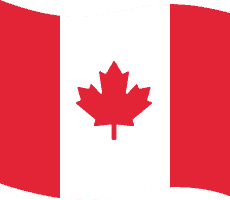Are you an international student who wants to pursue an academic or research-centric career? Canada’s U15 Group of Canadian Research Universities (also known as U15 Group, or U15 for short) could be a great pathway to reach your academic goals.
U15 has been around for just over a decade, but some of its universities are over 200 years old! Over that time, these universities have built a strong reputation for cutting-edge research. 81% of Canadian university patents are held by U15 universities, so studying at a U15 institution can contribute to research that’s making an important impact in Canada and worldwide.
Read on to learn more about U15—plus, how to make your study application stand out.
Serious about studying abroad? Use the ApplyBoard platform today!

Which Universities Are In the U15 Group?
U15 Group universities stretch across Canada, from the University of British Columbia (UBC) on Canada’s western coast to Dalhousie University (representing Nova Scotia) on the east coast.
Here’s an overview of all 15 universities and where they’re located:
Central Canada
In line with overall population density—60% of Canadians live in the provinces of Quebec and Ontario—most of the U15s are in central Canada.
- McGill University
- McMaster University
- Queen’s University
- Université Laval
- Université de Montréal
- University of Ottawa
- University of Toronto
- University of Waterloo
- Western University
Western Canada
In Western Canada, the provinces of Alberta, British Columbia, Saskatchewan, and Manitoba are represented in U15.
- University of Alberta
- University of British Columbia
- University of Calgary
- University of Manitoba
- University of Saskatchewan
Atlantic Canada
U15 features Dalhousie University from Canada’s maritimes as part of their prestigious list. The institution is located in the heart of Halifax, Nova Scotia, and is one of the world’s top international centres for ocean research.

What Is Studying at a U15 University Like?
Wonder what you’ll be in for by studying at a U15 University? Below we’ve broken down the locations, programs, tuition, and living costs from three U15 institutions.
Queen’s University
Location: Located in the heart of Kingston, Ontario, Queen’s University offers a prime location just a short stroll from the vibrant downtown scene. Students can easily drive to Toronto, Montreal, New York State, and Ottawa.
Programs: Queen’s offers a range of undergraduate and graduate programs, including:
- Bachelor of Applied Science – Computer Engineering
- Post-Graduate Certificate – Internationally Trained Teachers
- Bachelor of Arts (Honours) – Political Studies
Average (Gross) Tuition: C$53,221 / Year
Average Cost of Living: C$13,213 / Year
University of Saskatchewan
Location: The University of Saskatchewan is located in the lively city of Saskatoon, on Treaty Six territory and the traditional homeland of the Métis, offering students a culturally rich environment.
Programs: University of Saskatchewan delivers one of Canada’s widest arrays of academic and professional programs, including:
- Bachelor of Science – Agriculture – Agricultural Biology
- Master of Business Administration (MBA)
- Bachelor of Science – Physics
Average (Gross) Tuition: C$24,651 / Year
Average Cost of Living: C$12,960 / Year
University of Waterloo
Location: The University of Waterloo is located in the tech hub of Waterloo, Ontario. Waterloo is a vibrant and multicultural community, an hour outside of Toronto, with amenities like restaurants, boutique stores, parks, and hiking trails for students to enjoy.
Programs: The university offers programs in business, engineering, health, humanities and social sciences, the environment, math, and science, including:
- Bachelor of Science – Science and Business
- Master of Business, Entrepreneurship and Technology
- Bachelor of Arts – Recreation and Sport Business
Average (Gross) Tuition: C$44,599 / Year
Average Cost of Living: C$13,213 / Year
Want a more detailed look at a U15 university? Check out our Partner School Spotlight on Western University.

Is a U15 University Right for Me?
While U15 universities have a strong reputation for research, it’s best to think about your own goals and whether or not it makes sense to attend one. If academic research isn’t a primary goal of yours, you may want to explore study abroad options outside of the U15 group as well.
Before applying to a U15 university, answer these questions for yourself:
- What are your academic interests and goals? Settling on your most important academic goals will help you decide if a U15 university is the best fit for your educational and research aspirations.
- What is the return on investment (ROI) of attending a U15 university? Consider how your education at a U15 institution can open doors and create a pathway to success in your chosen field.
- What are your financial aid options? Always look into different financial aid options, including scholarships, grants, and loans that may be available for international students.
- What size of learning environment suits you? Would you learn best in a small classroom, or a larger lecture hall?.
- Are you open to a flexible academic journey? If you want to attend a U15 university, but prefer the learning environment of a different institution, you can get the best of both worlds by looking into transitional degree options.

How Can I Make My U15 University Application Stand Out?
Using ApplyBoard to submit your study abroad application will ensure no important requirements get missed, and can help boost your chances of acceptance—so, consider registering for a free account.
Otherwise, to help your application stand out to U15 universities, try using the following strategies:
- Research different programs you’re interested in. Every program has its own admission requirements. Look into the competitiveness of your field in advance to help you tailor your application accordingly.
- Apply to more than one program. Given how competitive U15 universities can be, it’s a good idea to apply to more than one program or institution.
- Highlight non-academic achievements. Along with your academic accomplishments, try to show off your non-academic achievements as well, whether it’s volunteer experience or extracurricular activities you’ve taken part in.
If you want to study in Canada, take a look at our undergraduate or postgraduate Canadian application process guides.
Whether you’re passionate about scientific innovation, the arts, or any other field of study, consider the U15 Group as a possible gateway to reach your academic goals. We wish you the best of luck on your journey!
Explore Canadian U15 Universities on the ApplyBoard Platform Now!



